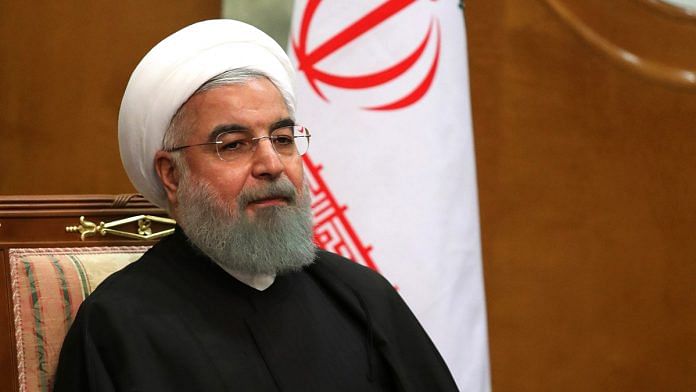France, Germany and the UK met last weekend in a bid to save the disintegrating 2015 Iran nuclear deal.
The daylong meeting concluded that Iran’s uranium cap breach was not “significant” enough to initiate the non-compliance clause and re-impose sanctions.
Earlier this month, Iran said it had violated the uranium enrichment limit of 3.67 per cent.
What prompted the breach?
Since the US withdrew from the deal last June and re-imposed sanctions, Iran has suffered major economic losses. The International Monetary Fund predicted that Iranian GDP could shrink by 6 per cent this year with food prices increasing by up to 85 per cent. Iran’s violation of the deal and threats of further escalation were a mark of protest against US sanctions.
Iran’s nuclear programmes are a cause for concern for the western powers that believe this may prompt Saudi Arabia, Turkey, and Egypt to consider developing nuclear weapons. Some also fear that Iran may pass on nuclear weapons to non-state militia such as Hezbollah.
How is the international community handling the breach?
On Monday, Iranian President Hassan Rouhani announced they were prepared to hold talks with the US only if it lifts the sanctions.
However, the US showed no signs of budging. US Secretary of State Mike Pompeo had cancelled a planned meeting in Moscow and made an impromptu trip to Brussels on the same day to persuade European leaders to sanction Iran.
Despite Pompeo’s efforts, the EU, however, remained steadfast in their intentions to preserve the deal.
On Sunday, French President Emmanuel Macron released a joint statement from France, Germany and the UK, calling for “all stakeholders to pause, and consider the possible consequences of their actions”.
Fellow signatory, China, also issued a statement confirming its commitment to the deal. China’s Foreign Ministry spokesperson said the US should respect the interests of all the parties and abandon its “maximum pressure” approach.
Both China and Russia have previously accused the US of pushing Iran to a corner over the deal.
What can the European nations do?
European powers have not yet found an effective way to counter the economic pressure on Iran from US sanctions.
Instex, which has largely been ineffective so far, may be improved to encourage oil trade. Though this currently covers humanitarian aid through food and medicine, it does little to improve Iran’s economy.
For Iran, its nuclear program was the price to overcome almost six UN resolutions isolating it from the global trade network. The US sanctions re-impose these restrictions, leaving Iran without any incentive to suppress its nuclear development in an increasingly unstable region.



